The conference agenda is the same for both in-person attendees and online participants.

NORNet2023 | 4th Nordic Conference on Research on Transitions, Career and Guidance
Scientific programme
| 18.00 | Welcome reception |
| 8.30 | Registration/info |
| 9:00–9:30 | Opening |
| 9:30–10:30 | Keynote The Politics Governing the Life Course: Multidimensional Perspectives Prof. Dr. Marcelo Parreira do Amaral University of Münster, Germany; visiting professor University of Turku, Faculty of Education/CELE |
| 10:30–11:00 | Coffee |
| 11:00–12:30 | Parallel session 1 |
| Session 1A: Immigrants and career councelling (ROOM 340) Chair: Tero Järvinen Developing Career Management Skills in Vocational Education for Newly Arrived Immigrants, Peter Gladoic Håkansson, Malin Axelsson Autonomy, professional discretion and the career guidance counseling of newly arrived migrants, Fredrik Hertzberg From language introduction to real upper secondary school program" – Transitions and career guidance of newly arrived upper secondary school students, Hassan Sharif "Enactment and Implications of Policies in the Field of Career Guidance and Counselling for Migrants’ Social Inclusion in Finland and Sweden: an Ecological Analysis, Alessandra Aldrovandi, Mira Kalalahti, Åsa Sundelin |
|
| Session 1B: Transition policies (ROOM 359) Chair: Nina Haltia Track change? Young people´s experiences of critical educational transitions, Lisbeth Lundahl, Joakim Lindgren, Åsa Sundelin The Finnish higher education student admissions reform through the eyes of general upper secondary schools and general upper secondary students, Laura Heiskala, Sirkku Kupiainen, Irene Rämä, Mikko Niemelä, Risto Hotulainen The Politics of Educational Transitions in Finland: An Analysis of Recent Educational Reforms, Alina Inkinen, Nina Haltia |
|
| Session 1 C: Learning and achievement in career research (ROOM 360) Chair: Leena Haanpää School desegregation policies in Sweden: elementary school students achievement and social cohesion, Stefan Lund The relationship between student’s career adaptability (CAAS) and social factors in Finnish Upper secondary education, Hanna Nuutinen Learning as the modifier of career in an era of uncertainty, Ingela Bergmo Prvulovic The relationship between social support and career adaptability: The mediating role of self-efficacy, Ziyu Wang |
|
| Session 1D: Barriers in school-to-work transitions (ROOM 355) Chair: Piia Af Ursin Differences in school-to-work trajectories between early school leavers and non-leavers in Sweden, Olav Nygård How and in what ways can society help Early School Leavers? Alireza Behtoui Supporting Young Adults in Complex, Insecure and Non-Linear Labour Market Transitions – Perspectives from the Capability Approach, Frida Westerback Between household and migration: Barriers to school-to-work transitions for young women in Yugoslavia, Mato Bosnjak |
|
| Session 1E: Symposium: Youth’s Learning Outcomes: Towards a holistic and context-sensitive approach (ROOM 357 A) Chairs: Marcelo Parreira do Amaral, Jozef Zelinka A further side of the prism: integrating participatory methods into research on Learning Outcomes to see beyond quantification, Sebastiano Benasso, Davide Filippi, Luca Raffini Mismatching meanings and goals of learning outcomes – Policy reforms and lived realities in Finnish general upper secondary schools, Jenni Tikkanen A European assessment of territorial divides in youth learning and school-to-work outcomes, Ruggero Cefalo, Rosario Scandurra, Alexandra Ioannidou, Yuri Kazepov |
|
| 12:30–13:45 | Lunch |
| 13:45–15:15 | Parallel session 2 |
| Session 2A: Cultural factors in career development (ROOM 359) Chair: Piia Af Ursin Immigrantisation Informing Finnish Career Counsellors’ Discretion as Street-Level Integrators: Overruled Ideals, Coping Strategies, and Experiences of Loneliness, Miika Kekki, Anne-Mari Souto Unlived lives and possible careers – Narratives from young men living in a mill village in Sweden, Camilla Thunborg Multilingual students' aspirations and post-comprehensive educational choices, Ninni Lankinen Just waiting for a residence permit and adulthood – young asylum seekers making social ‘ends meet’ in a local context 2015-2022, Peter Waara, Hassan Sharif, Leif Berglund |
|
| Session 2B: Transition to higher education (ROOM 340) Chair: Tero Järvinen Normative whiteness in Finnish universities, Anne-Mari Souto, Sirpa Lappalainen Gaining confidence, maintaining faith – entering performing arts education, Marie Wos Boundary crossing in educational transitions: The case of Finnish university students with vocational background, Ulpukka Isopahkala-Bouret, Nina Haltia Supporting students’ successful trajectories through the stability and coherence of social resources? Carina Carlhed Ydhag, Ali Osman, Niclas Månsson |
|
| Session 2C: Theoretical views on career development and guidance (ROOM 360) Chair: Päivi Naumanen Theorizing class and ethnicity through the lenses of Critical Realism., Mohammad Ammar Syed, Mattias Nylund Pastoral power manifestations within the guidance professionals’ talk on guidance practices, Samira Harjula, Mira Kalalahti Using the Systems Theory Framework of Career Development to think intersectionally about women’s experiences of education and work, Gill Frigerio |
|
| Session 2D: Professional view on guidance (ROOM 357 A) Chair: Leena Haanpää Internship guidance in transition from educational programmes into the profession and working life, Randi Boelskifte Skovhus, Charlotte Troelsen The (in)visibility (?) of Career Guidance Counsellor's Role and Function in Municipal Adult Education Research - Implications for future politics of educational and working life transition, Ingela Bergmo Prvulovic, Nevena Pantelic Who is guiding students in Catalonia and doing what? A diagnosis in publicly funded compulsory education schools in Catalonia, Màrius Martínez-Muñoz, Angelina Sánchez-Martí, Marc Martínez-Pons What’s the impact of embedded guidance on student academic performance? The case of publicly funded compulsory education in Catalonia, Angelina Sánchez-Martí, Marc Martínez-Pons, Màrius Martínez-Muñoz |
|
| Session 2E: Symposium: Politics of non-urban places in educational transitions and guidance, part 1 (ROOM 355) Chair: Suvi Jokila Nations as places for development of organization and content of career guidance in school: Developing a typology for comparison with the examples of Norway, Finland, Denmark, Germany, and Ireland, Ida Holth Mathiesen Unequal geographies of education: The educational conditions of Hinterland youth in Finland, Päivi Armila Young people on the edge of neoliberalism - Youth in the countryside and their free choice, Trond Buland The politics of place in educational transitions in rural areas for newly arrived immigrants in 2015 and onwards, Per-Åke Rosvall, Elisabet Öhrn, Dennis Beach, Monica Johansson, Maria Rönnlund |
|
| 15:15–15:30 | Coffee |
| 15:30–16:30 | Keynote (Dis)advantaged patterns of education and employment: intersections of migration, racialization and gender Shadia Rask Finnish Institute for Health and Welfare (THL), Finland |
| 19:00 | Conference dinner |
| 8:30–9:30 | Registration/info |
| 9:30–10:30 | Keynote Meaningful life from 5-9? Precarious work and learning - over life course Triin Roosalu Tallinn University, Estonia |
| 10:30–11:00 | Coffee |
| 11:00–13:00 | Parallel session 3 |
| Session 3A: Councellors' perspectives on guidance (ROOM 360) Chair: Nina Haltia Understanding Career Learning through Guidance Counselor Trainees’ Retrospective Reflections, Kicki Häggblom, Pia Nyman-Kurkiala, Jessica Aspfors Career guidance practitioners' approaches to building relationships with and advocating for their clients in public employment services, Toni Kosonen, Sanna Vehviläinen, Heli Pesonen, Hanna Nuutinen, Anne-Mari Souto Exploring praise of the client in career guidance encounters, Sanna Vehviläinen When can we call ourselves career counselors? A discussion of the self-evaluation tool My Competence as a step towards professionalisation, Kristina Mariager-Anderson, Ellen Simensen, Mette Omnes The contradictions of career guidance of unemployed young adults in the context of changing employment services – a case study analysis of a regional employment experiment in Finland, Päivi Naumanen |
|
| Session 3B: Politics and governance of guidance (ROOM 359) Chair: Ulpukka Isopahkala-Bouret Constructing Impacts of Public Guidance Policies in Educational Transitional Transitions, Mira Kalalahti, Janne Varjo, Minna Vilkman What is, and has been, the purpose and role of study and career guidance in Swedish compulsory school? An analysis of curricula and surrounding policies 1962 -2022, Elisabeth Berg, Mattias Nylund The birth of career guidance in Denmark – Governing career guidance in the final years of Danish compulsory school through policy 2003-2019, Bo Klindt Poulsen Discourses in development of career guidance and career education in Norwegian schools since 1990, Petra Røise, Ida Holth Mathiesen Career Education in Denmark - a critical review of policy and curriculum, Gry Tybjerg, Rie Thomasen, Randi Boelskifte Skovhus |
|
| Session 3C: Symposium: Politics of non-urban places in educational transitions and guidance, part 2 (ROOM 355) Chair: Per-Åke Rosvall Spatial intricacies in rural education landscapes – hard data and soft reflections on education motivations, trajectories and transitions, Unn-Doris K. Bæck Adolescents living in rural areas and their school choices in Finland, Katariina Löfblom Does rural youths’ use of online information resources to learn about education and work enhance options or increase social inequalities? Anna Pallin The politics of student admission: Crafting geographical mobility in school practices, Suvi Jokila Conflict and compromise: rural graduate pathways, Rosie Alexander |
|
| Session 3D: Interactive discussion session (ROOM 357 A, this session is open only for participants registered for the session) Chair: Iida Kiesi & Anna-Maija Niemi Implementation of policy on work experience placement in Swedish compulsory schools, Mahtab Eshaghbeigi-Hosseini Identities in Transition: Adult Immigrants Experiences of Work-school Transitions in Finland, Paulina Chavez Rodriguez "A dream for a bright future"- Exploring perspectives of Pakistani students who come to Sweden to pursue higher education and the social and cultural context in which they make this decision, Rida Nasir Graduates’ employability and transition to working life in relation to their socio-economic status, Tarja Tuononen Better-informed education choices and wider future prospects through increasing flexibility within upper secondary education, Outi Lietzén As a girl in high school, Heli Pesonen They chose that path I guess: Educational decision-making and student perceptions of success in rural Nova Scotia, Daniel d'Entremont Female students at Chalmers University of Technology: A digital analysis of the gender discourse in the student paper Tofsen 1955–1977, Petronella Rosenquist University students’ social representations about career planning, Leena Itkonen Guidance counselling and entanglement with more-than-human nature, Sara Peltola Is the “single structure” education model providing successful transitions and a co-responsible guidance? The case of public educational centres in Catalonia, Marc Martinez Pons |
|
| 13:00–14:00 | Lunch |
| 14:00–15:00 | Keynote Youth Transitions under the Conditions of Radical Risks and Uncertainties Tero Järvinen, Professor Department of Education / Centre for Research on Lifelong Learning and Education (CELE), University of Turku, Finland |
| 15:00–15:15 | Closing (Reykjavik team) |
Please note that the times of the items are subject to change.

